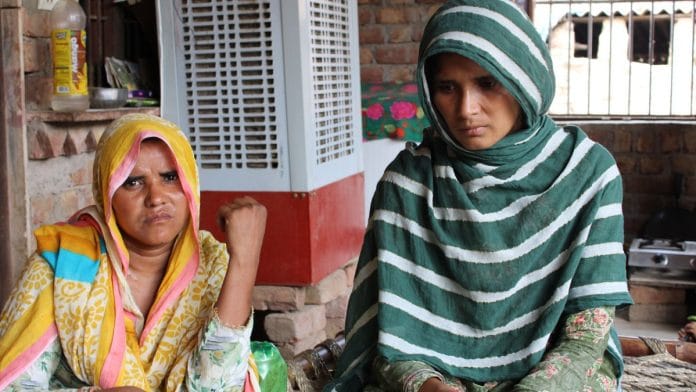Ghatmeeka, Rajasthan: Just a year ago, Sajida’s life shattered when her husband Junaid, 35, was set ablaze by Hindu cow vigilantes in Haryana’s Bhiwani. A month ago, her 14-year-old daughter died of a heart attack. But this week she put on a brave smile as she opened her new cosmetic shop in her brother-in-law’s home, 50 metres away from her own place.
Lipsticks, bangles, shampoo, jewellery, pink glittery slippers. Women flock to her 15×10-feet shop. They know it’s been a rough year for her. Among them is Parmeena Nasir, who also lost her husband on the same night in Bhiwani. She bought items worth Rs 150. The two women smile at each other. The shop offers a new possibility for Sajida and is an inspiration for Parmeena.
“I also want to open such a shop. At least I will be able to cover my expenses. But I need some money to start,” said Parmeena, who lives barely 100 metres away from Sajida’s, with a sparkle in her eyes.
At the shop, Sajida, 34, is carefully putting each item in its right place. But not before shutting the door of the shop, lest her young children put things out of order. A buyer checks out the Leheriya dupatta but doesn’t buy it, saying she will drop by later.
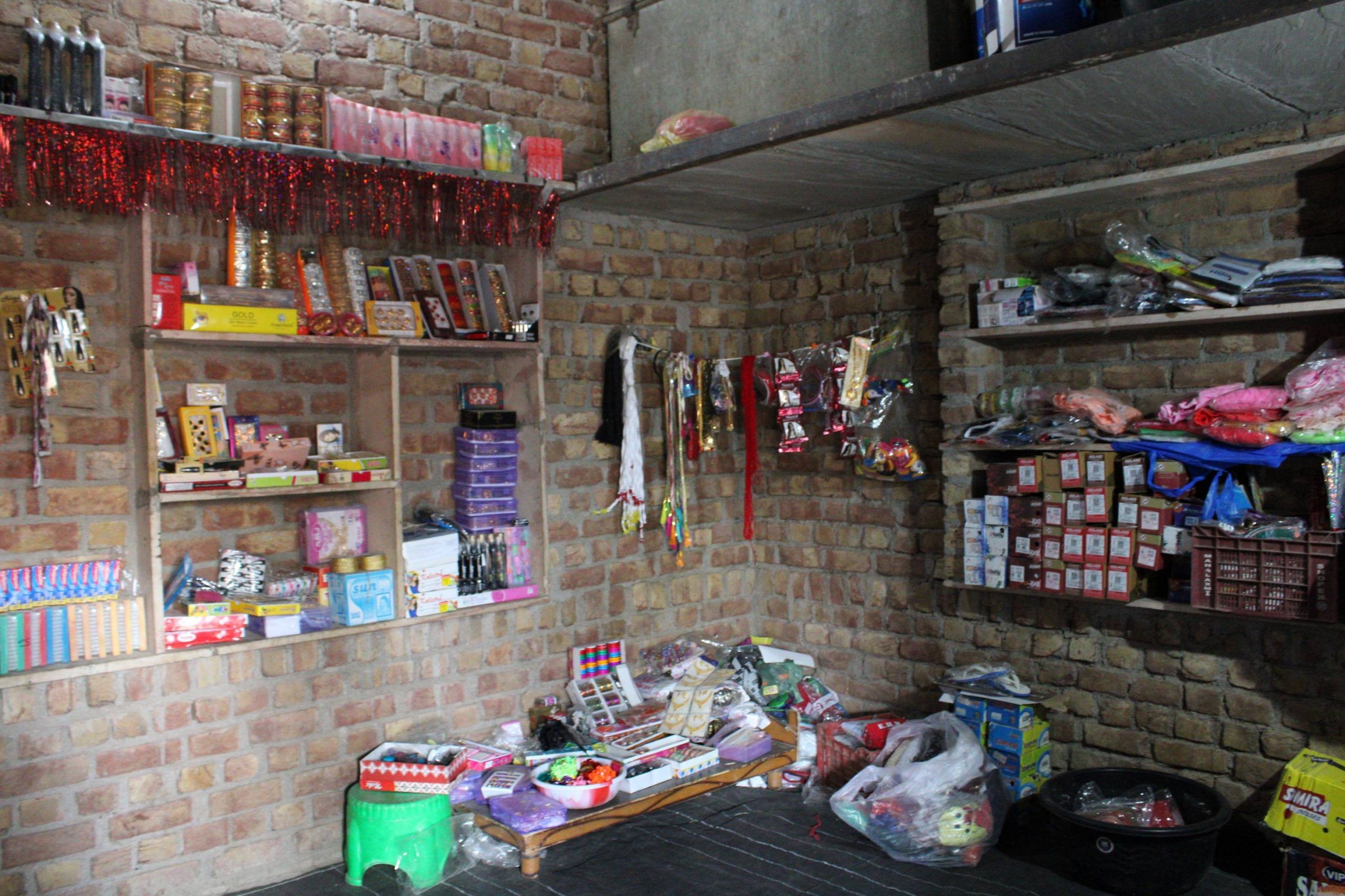
“My whole life has changed. It’s filled with challenges, and tears. Now, I have to get my life back on track and get justice too,” said Sajida.
Sajida and Parmeena are striving to restitch their lives despite economic and social challenges. They have had to pull their children out of school because of dipping incomes since the male money earners were killed. The fear unleashed after the killings by gau rakshaks last year continues to haunt them. And they worry that the Junaid-Nasir hate crime—as it has come to be known—will slip out of public memory and politicians will stop raising it.
The slow court proceedings aren’t helping either. The absence of hearings on their petition against the Rajasthan Bovine Animal (Prohibition of Slaughter and Regulation of Temporary Migration or Export) Act 2015, and the Haryana Gauvansh Sanrakshan and Gausamvardhan Act 2015 has also disheartened them. Currently, they are trying to sustain themselves in their predominantly male-dominated society.
My whole life has changed. It’s filled with challenges, and tears. Now, I have to get my life back on track and get justice too – Sajida, Junaid’s wife
Nasir and Junaid were beaten up and killed by cow vigilantes. On 16 February 2023, their burnt bodies were found in a Bolero car in Haryana’s Bhiwani.
The sudden, senseless tragedies in their lives have changed both women. While Parmeena has retreated into a shell of silence, Sajida has found her voice for the first time. She speaks openly against injustice and is chasing up lawyers about the court case.
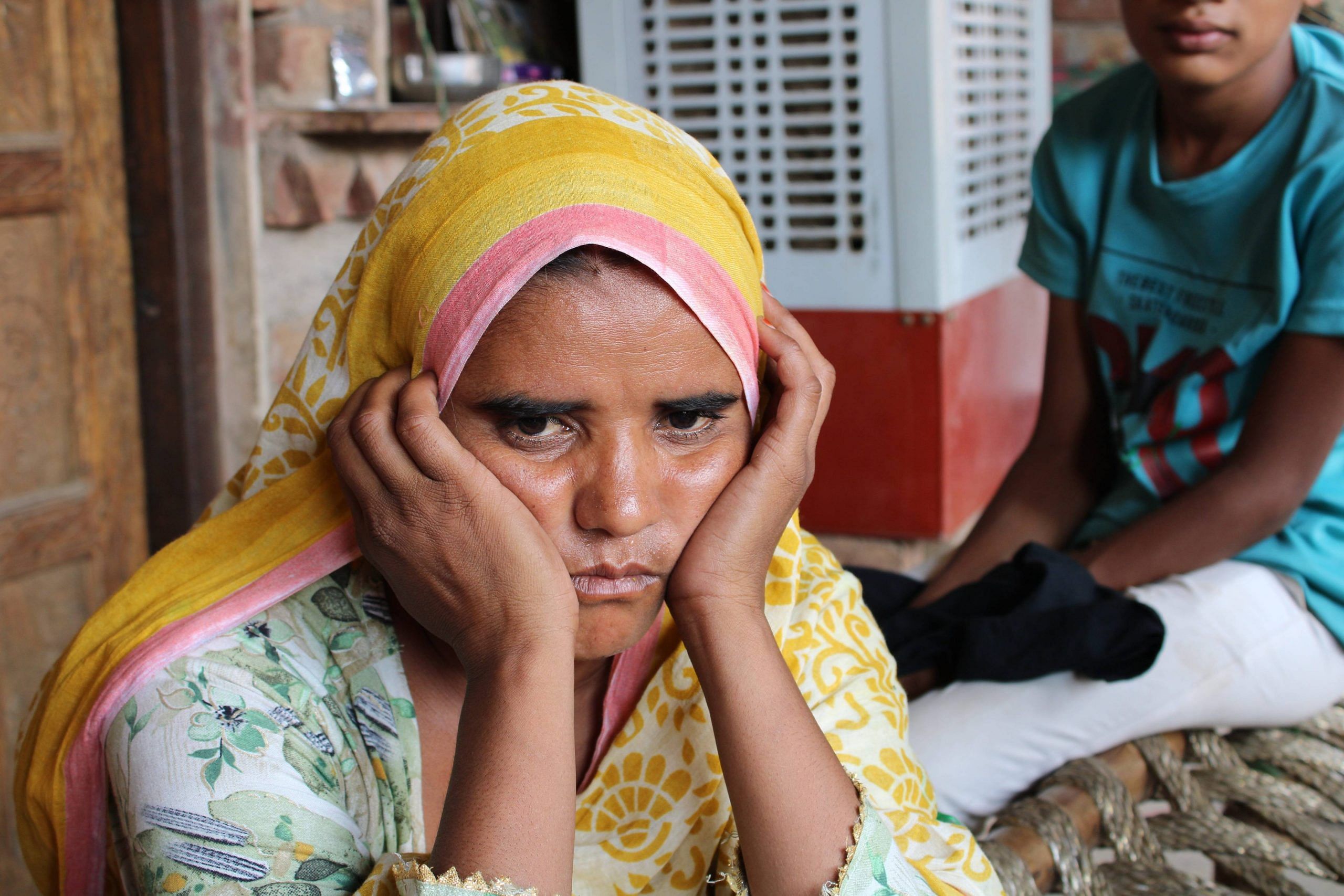
Another death in the family
After her husband’s death, the responsibility to raise their six children came on Sajida’s shoulders. But a little over a year after Junaid’s death, one more death knocked at the family’s door.
Junaid’s death, the family said, shook his 14-year-old daughter to the core, ultimately leading to her death. It was the grief. She could hardly speak and her health had started deteriorating, she lost weight, had a fever, and had to be admitted to a hospital.
“What had my father done? Why was he killed? When will he be back home? Parwana often asked us these questions but we didn’t have any answers,” said 55-year-old Ismail, Junaid’s cousin, unable to stop his tears.
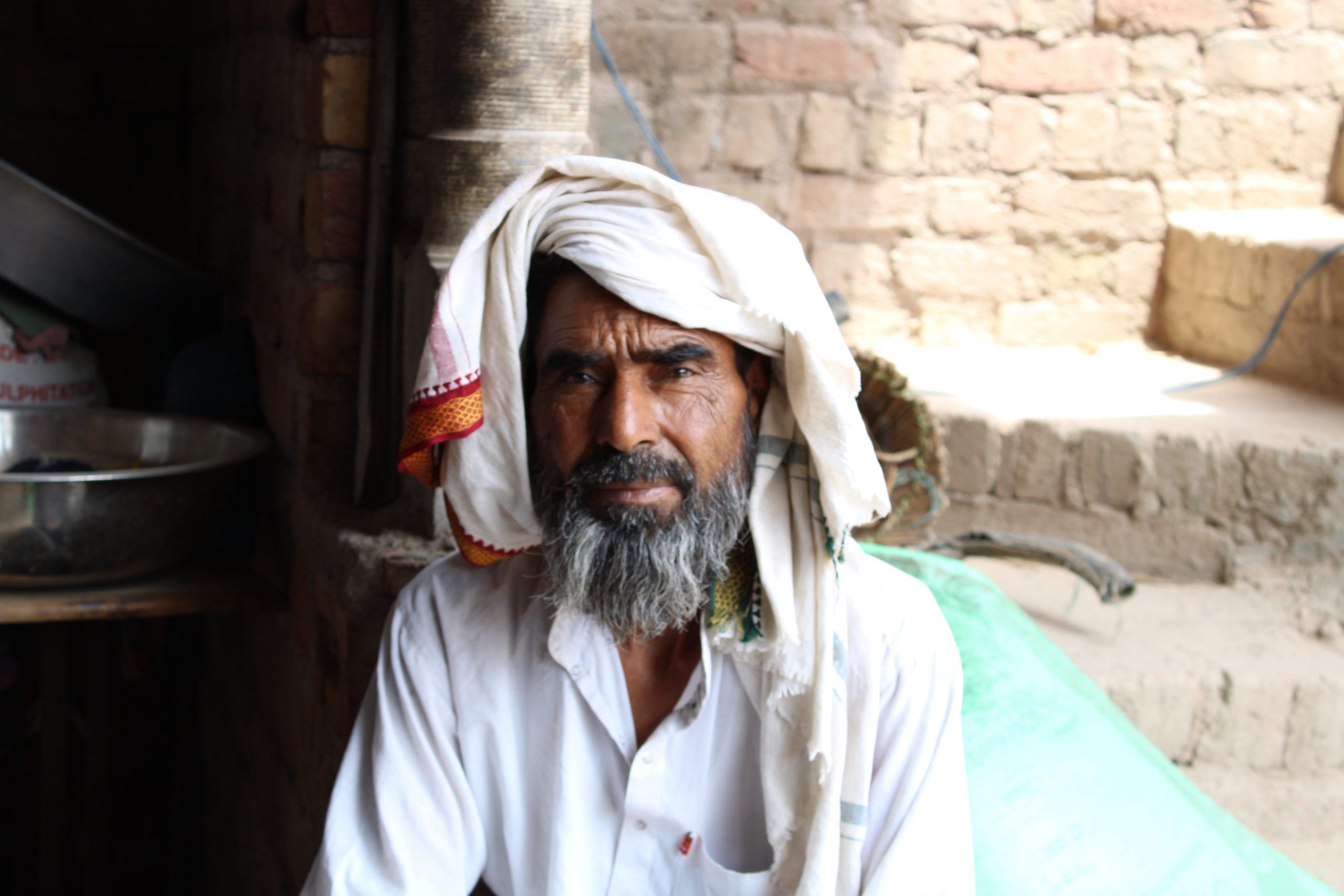
The night she died, Parwana had called her mother from the hospital and assured her she would soon return home. That was the last time Sajida would hear the voice of her 14-year-old.
Around 11:30 pm, she suffered a heart attack and died.
“I didn’t know she would come back like this,” said Sajida, crying.
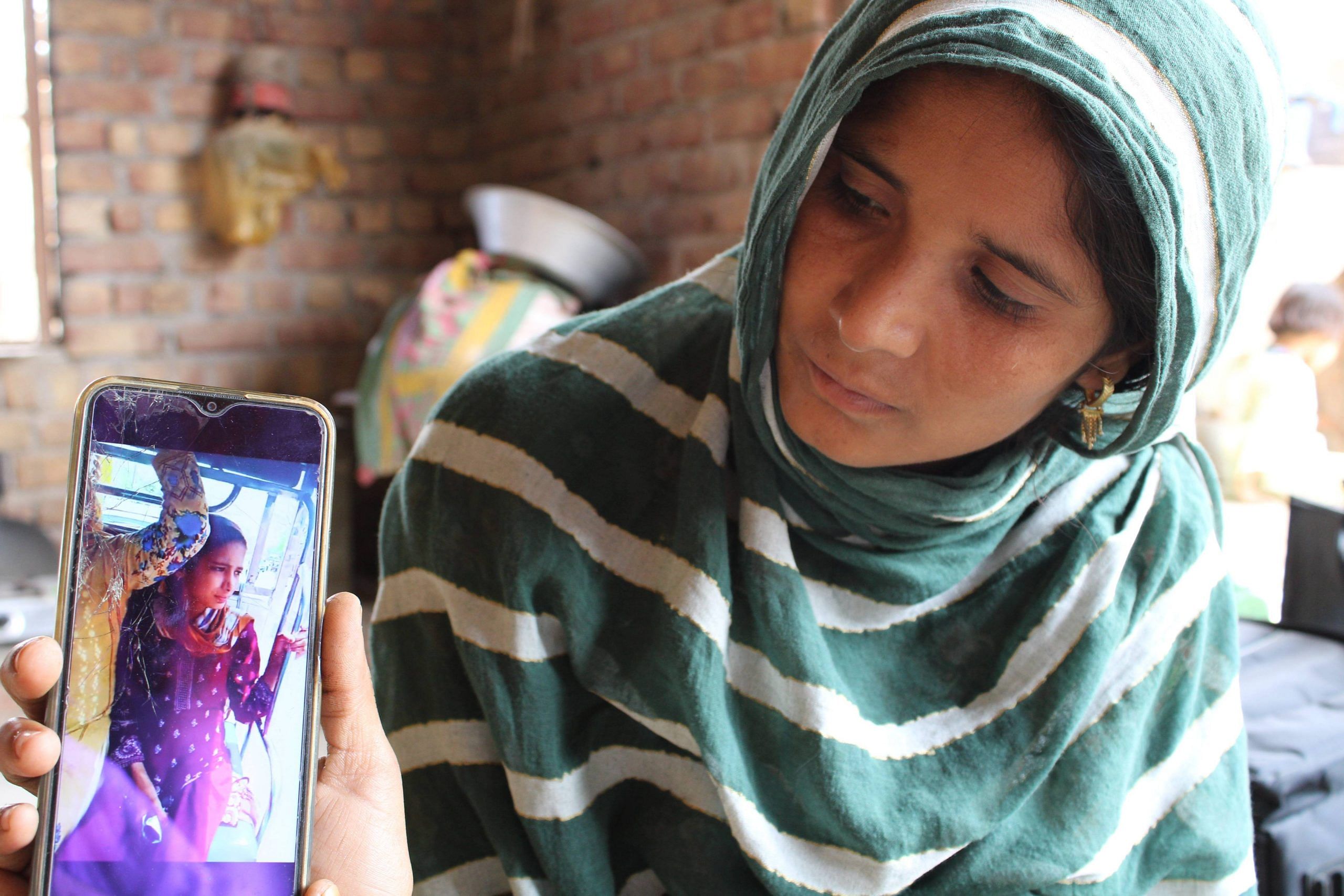
Also read: Rural Haryana is at war with love marriage—brother shoots sister, boasts on Instagram with gun
‘I will open my shop’
A shop near Sajida’s home is filled with grocery items. Old men from the village often gather here. Not long ago, it belonged to Junaid. He had rented the place for Rs 1,000 per month. But orthodoxy meant, Sajida didn’t get to inherit it.
Now, she is doing something she saw her husband do from close quarters—but within the confines of Ismail’s home. And her business primarily involves women customers.
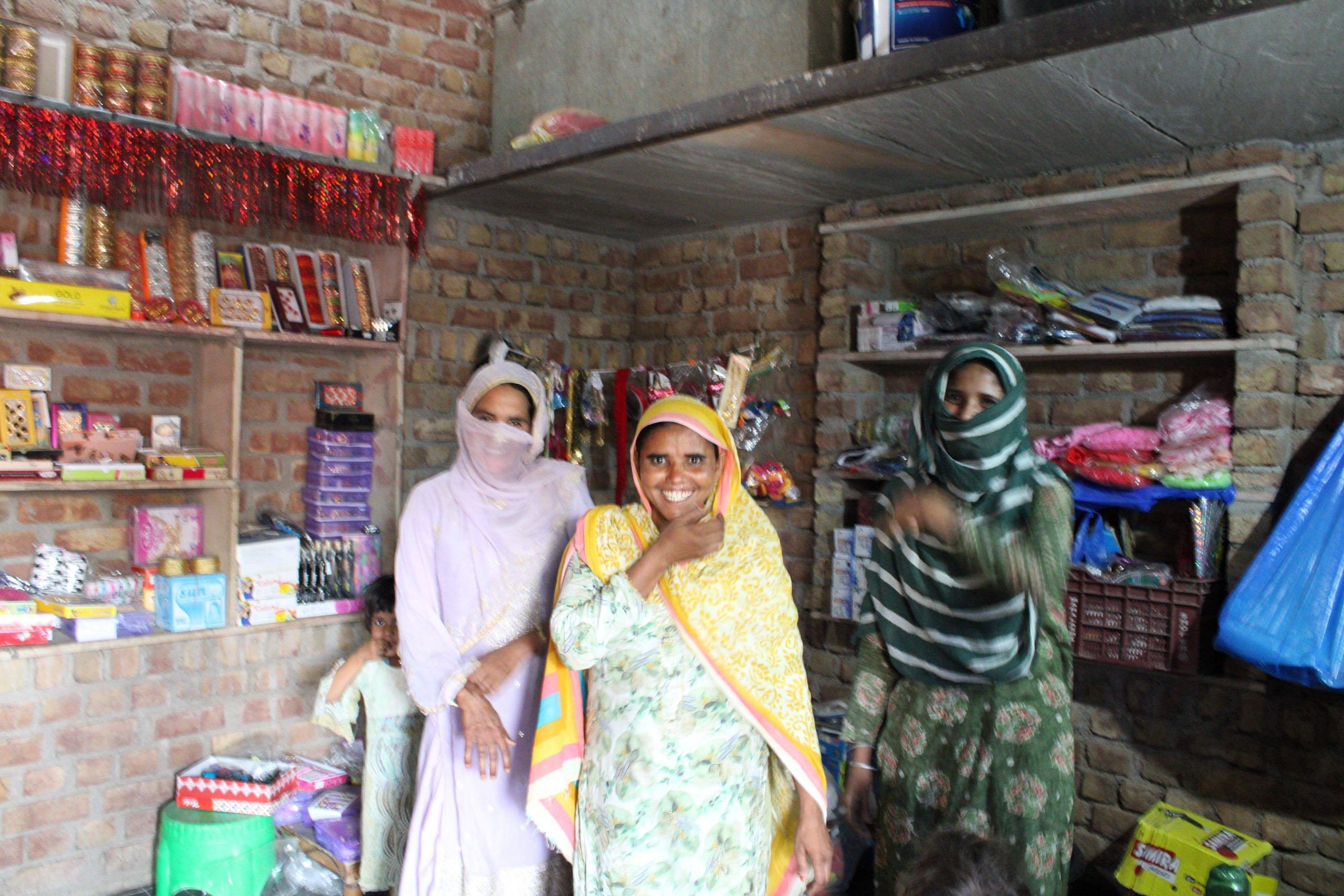
With his earnings from the shop and by selling milk, 35-year-old Junaid was sending five children — his three sons and two sons of his elder brother to a private school located in the village, paying a monthly fee of Rs 15,000.
What had my father done? Why was he killed? When will he be back home? Parwana often asked us these questions but we didn’t have any answers – Ismail, Junaid’s cousin
Now, these children are attending a modern madrasa that teaches Maths, English, and Science along with Islamic education.
Sajida has been unable to buy new clothes for her children on Bakrid this year.
She wants to send her children back to the private school. She is confident they have the potential to change her life and help her navigate the challenges.
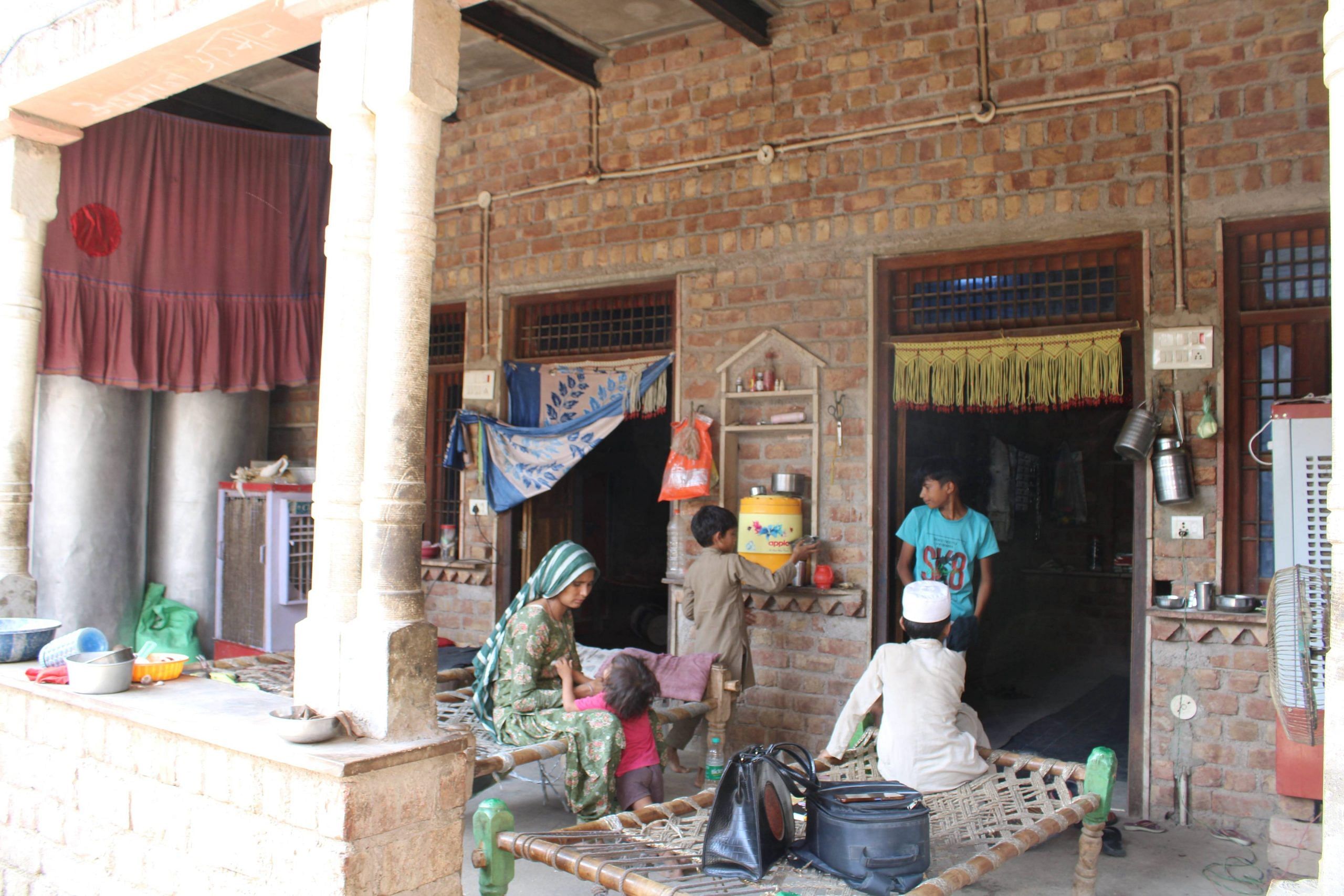
Parmeena is dealing with her pain by keeping herself busy with domestic chores. But she is also planning to borrow some money from her parents and start a shop.
“I will try to open my shop. I am not sure if I can due to financial restraints, but I want to contribute to the house expenses,” said Parmeena who stays with her brother-in-law’s family.
Junaid’s family owns two acres of agricultural land and one buffalo. Before opening a new shop, she earned around Rs 8,000 per month, selling milk and crops. However, her agricultural income and earnings from selling milk, once supplementary, now fall short of covering all expenses.
Sajida received a total of Rs 6 lakh in compensation from the Rajasthan government and AIMIM Chairman Asaduddin Owaisi. She made a fixed deposit under her eldest son’s name. And from the past three months, she also started receiving a monthly widow’s pension of Rs 1,000.
Also read: ‘They just dropped dead’—UP home guard who saw 3 colleagues die can’t forget those 20 mins
Violence forgotten
A few elderly people gather in front of Sajida’s house, discussing the employment avenues before the village youth. Due to limited job opportunities, most men in the Muslim-majority Ghatmeeka are engaged in farming or agricultural labour. Those who don’t have land, work as truck drivers. Some others make a living by cattle trade, which makes them vulnerable to cow vigilantes.
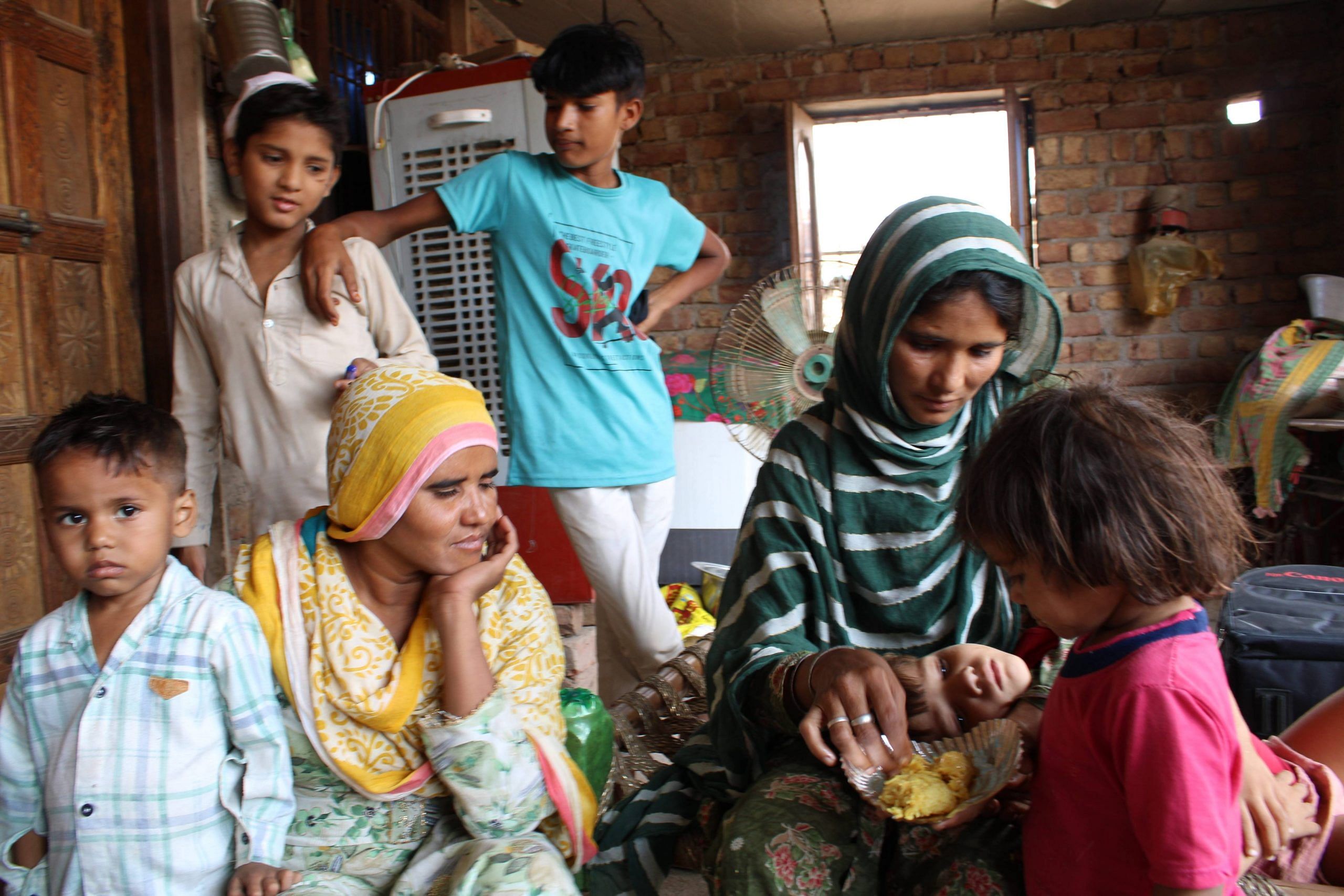
“There was a lot of fear after the Junaid Nasir incident,” said one of the old men, “but the situation is now becoming normal.”
Ghatmeeka has a population of 1,600, mainly consisting of small farmers and lorry drivers. And the issue of cow cattle smuggling is a hot button here.
Those who killed Nasir and Junaid, those who kill people in the name of cows should be given the death penalty. There should be strict action against informers as well,” said Sajida while preparing to feed her buffalo—Sajida, Junaid’s wife
The village sarpanch, however, said he is doing his bit. “There is peace in the village. No one remembers this incident. After the Junaid-Nasir murder, I held several panchayat meetings to persuade people to stop this activity of cow smuggling. But they did not listen and are still doing it,” said Ramavatar Khandelwal.
In November 2017, another resident of the village Umar Khan, 35, was found dead in Alwar district. His family alleges he was murdered by cow vigilantes.
It is this cycle of violence against Muslims perpetrated by the cow vigilantes that these two women want to break. Sajida and Parmeena lamented being neglected.
According to Sajida, after the incident, several political leaders visited her home, but now Nasir and Junaid have been forgotten.
“It is important to keep discussing Nasir and Junaid to ensure justice for them,” she added.
The sarpanch emphasised that if Junaid and Nasir had not been burned alive, the case would not have gained any attention.
“Had they been beaten and dumped somewhere, it wouldn’t have spread as much.”
Khandelwal claimed that the Junaid-Nasir murder case is linked to extortion demands by cow vigilantes.
Also read: One Agra lawyer, 5 cases, a fight for Hindu pride—Taj Mahal to Jama Masjid, Salim Chisti dargah
A petition and the slow pace of justice
A spate of violence against Muslims indulged in cattle trade has brought four women together to wage a larger legal battle through a joint petition in the Supreme Court challenging the provisions of the Rajasthan Bovine Animal (Prohibition of Slaughter and Regulation of Temporary Migration or Export) Act 2015, and the Haryana Gauvansh Sanrakshan and Gausamvardhan Act, 2015.
The Jamiat-Ulama-i-Hind activists brought Sajida, Parveena and two others together when they met at Sajida’s house last June. The other women in the petition are Khurshidan — Umar Khan’s wife — and Asmeena—whose husband Rakbar Khan and his friend Aslam were killed by a mob in July 2018.
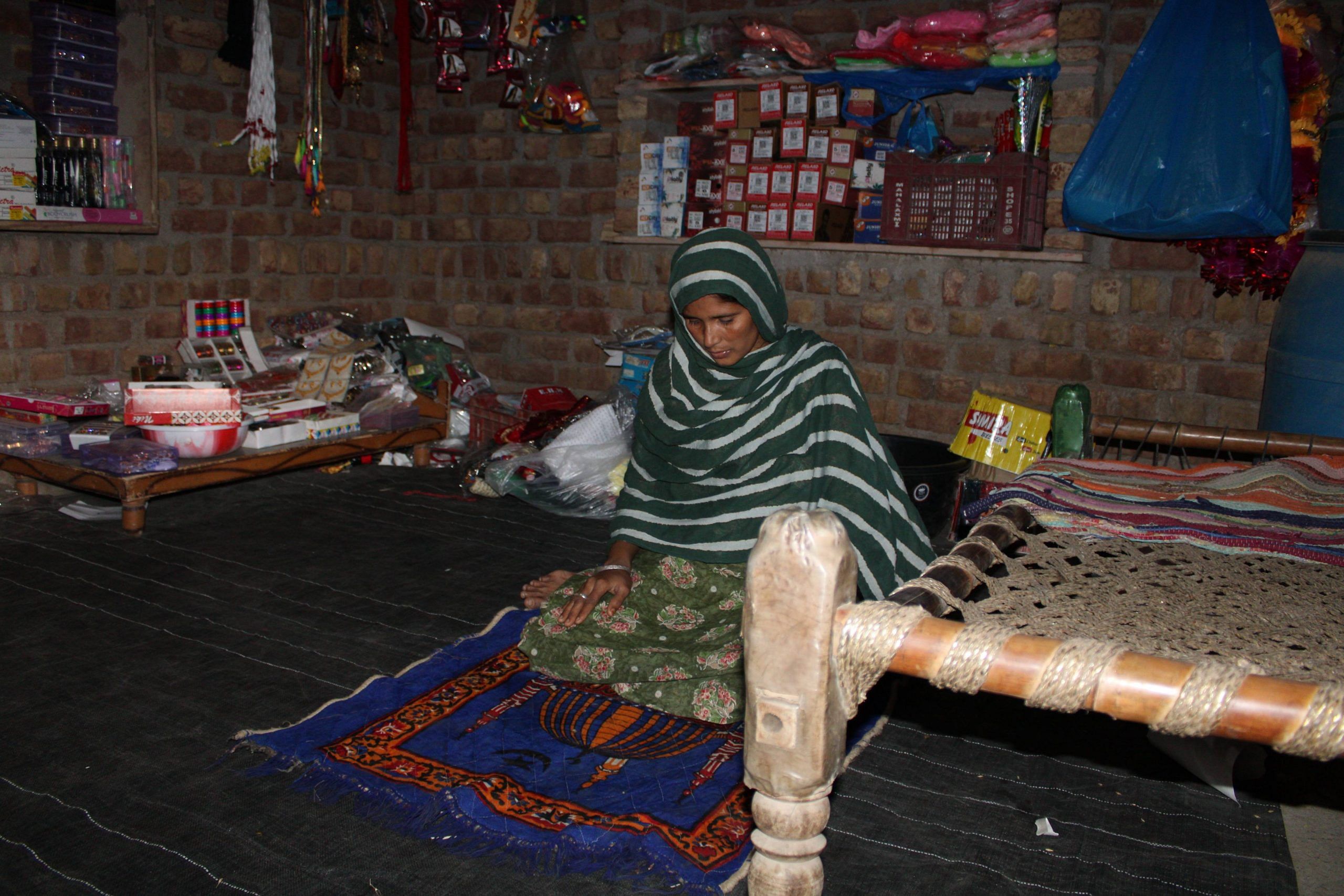
“We want this law to be abolished. Many lives have been lost. In both states, many women are seeking justice,” Sajida emphasised.
Their petition is still pending in court and Sajida and Parmeena are concerned with the slow progress of the murder case hearings.
Advocate Mohammad Nasir, representing Junaid and Nasir’s family in their murder case pro bono, stressed the need for a special court to handle sensitive cases in a time-bound manner.
He said that police haven’t submitted evidence yet in the Kaman district court. The hearing on Section 193, which deals with giving false evidence in judicial proceedings, took place at the district court on 26 June. The court will pronounce its judgment on 29 June.
Amjad Khan, Nasir’s younger brother, and Ismail are taking care of the legal matter. Each court hearing costs around Rs 500.
It takes them more than an hour and multiple modes of transport, including auto, cab and a bus ride, to reach the court complex. And damaged roads mean the ride is difficult too.
Khan is also concerned about the expenses incurred on document preparation and photocopying. “Photocopying the charge sheet alone cost Rs 4,500,” he said.
Going to court is quite expensive. Khan added that if the lawyer started charging, they wouldn’t be able to fight the case.
“Those who killed Nasir and Junaid, those who kill people in the name of cows should be given the death penalty. There should be strict action against informers as well,” said Sajida while preparing to feed her buffalo.
Also read: Amritsar man killed in Ukraine war only got 2-week training. Wife now begs for his remains
Raising their voice
In the middle of rocky Aravalli hills, residents of this small Muslim-majority village endure scorching heat, irregular electricity, expensive water, and broken roads. The road leading to the madrasa is often filled with young girls wearing burqas.
“Earlier, no one knew about Ghatmeeka. Now, it is recognised by the names Nasir and Junaid,” said Afzal, an elderly resident.
According to the villagers, there is only one government school in the village and teachers are irregular and no hospital. If there is a medical emergency, villagers have to travel about 70 km to Alwar.
We want this law to be abolished. Many lives have been lost. In both states, many women are seeking justice—Sajida, Junaid’s wife
Parmeena and Nasir did not have any children and she was alone after his death. This led to her unofficially adopting two of her brother-in-law’s six children — a girl and a boy. But Parmeena and Sajida still face the stigma of being widows.
According to Ismail, Parmeena has become imprisoned within the confines of her own home. Very few people visit her.
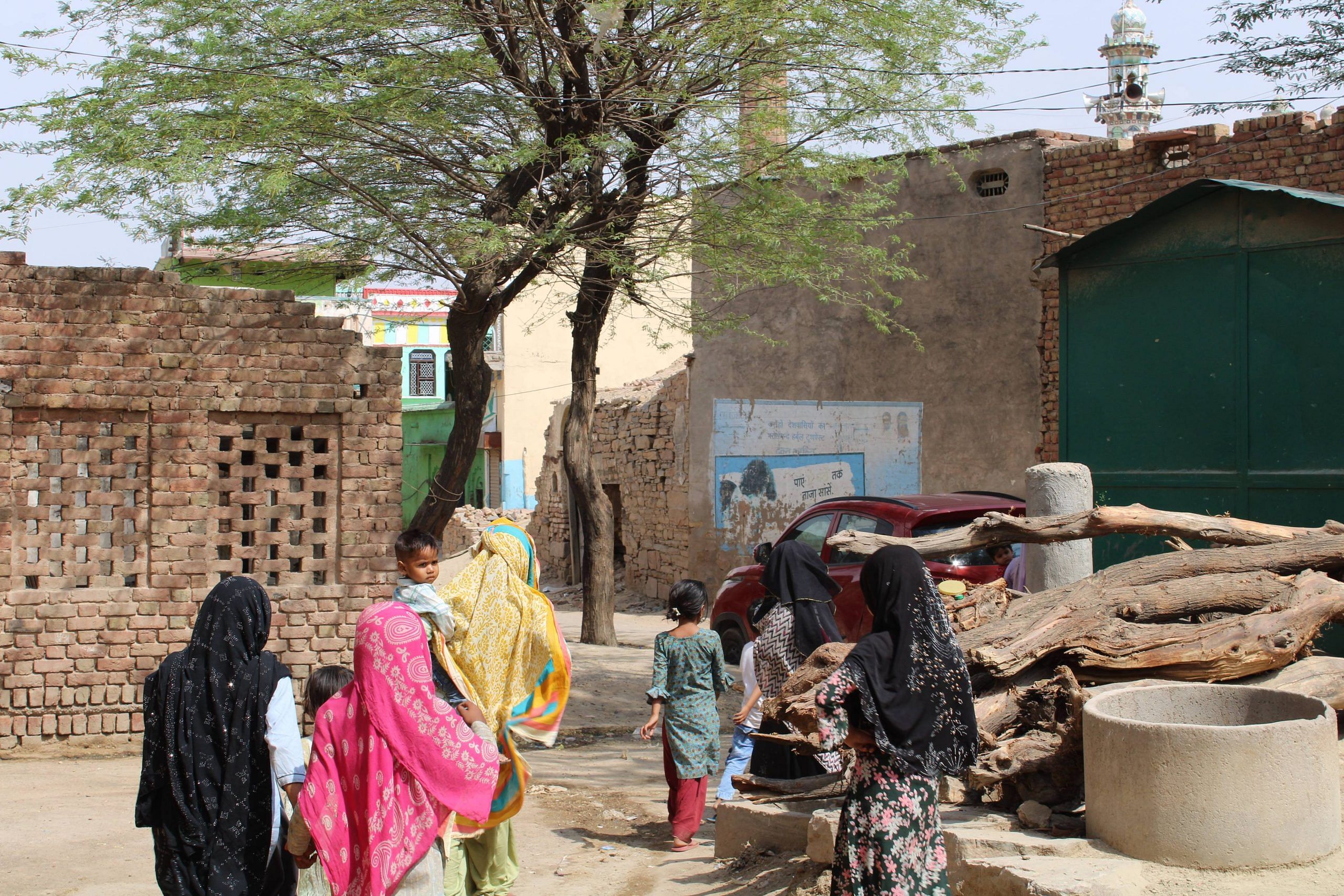
“This is a village. If a widow steps out alone from her home, questions can be raised on her character,” he said.
But Parmeena and Sajida have each other’s back—both financially and socially. They often step out of their homes to see each other.
And they now make sure what happened to them doesn’t happen to others in the village.
After a sudden commotion outside Sajida’s house, she steps out to see a small crowd. A young man was accusing an elderly man of misinforming cops about one of his family members being involved in cow smuggling.
“You have informed the police again, this is ruining families and the village,” Sajida shouted.
“Just seeing this makes my blood boil.”
(Edited by Anurag Chaubey)



